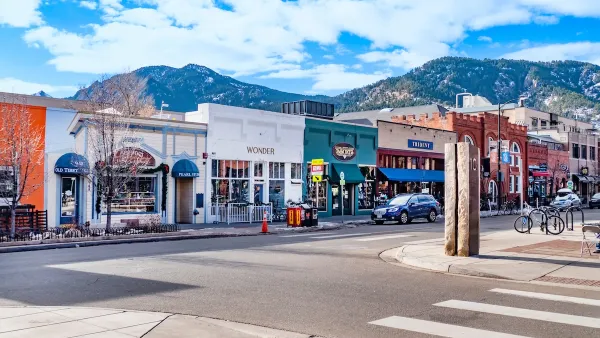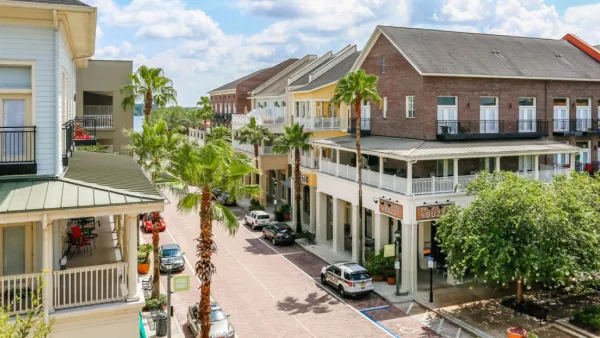Like the major automakers, cities have been warned for years that they need to rein in sprawl and become more energy-efficient; and having neglected these warnings must now restructure how they operate, says Jack Diamond of the Globe and Mail.
"As difficult as it is for General Motors to restructure its business, with so-called legacy issues embedded in the way it does business (gas guzzlers, too many dealerships, union contracts and so on), so it is difficult to restructure the shape of our cities. But it is not impossible, and like GM, we have no option. The sooner we acknowledge the problem, the better our prospects for a sustainable future.
There are ways to begin the necessary transformation. First, higher densities should be zoned within walking distance of existing public-transit stops. Second...No expensive rail bed is required for bus service. Buses can serve local routes or longer-haul, express routes. They can have a number of stops in one neighbourhood, then go directly to a more remote destination.
These are just two of the steps available to begin the process of rendering our cities economically and environmentally sustainable. Once these are begun, there are a host of others to accelerate the change."
FULL STORY: Now is the time to reshape our cities

Planetizen Federal Action Tracker
A weekly monitor of how Trump’s orders and actions are impacting planners and planning in America.

Maui's Vacation Rental Debate Turns Ugly
Verbal attacks, misinformation campaigns and fistfights plague a high-stakes debate to convert thousands of vacation rentals into long-term housing.

Restaurant Patios Were a Pandemic Win — Why Were They so Hard to Keep?
Social distancing requirements and changes in travel patterns prompted cities to pilot new uses for street and sidewalk space. Then it got complicated.

In California Battle of Housing vs. Environment, Housing Just Won
A new state law significantly limits the power of CEQA, an environmental review law that served as a powerful tool for blocking new development.

Boulder Eliminates Parking Minimums Citywide
Officials estimate the cost of building a single underground parking space at up to $100,000.

Orange County, Florida Adopts Largest US “Sprawl Repair” Code
The ‘Orange Code’ seeks to rectify decades of sprawl-inducing, car-oriented development.
Urban Design for Planners 1: Software Tools
This six-course series explores essential urban design concepts using open source software and equips planners with the tools they need to participate fully in the urban design process.
Planning for Universal Design
Learn the tools for implementing Universal Design in planning regulations.
Heyer Gruel & Associates PA
JM Goldson LLC
Custer County Colorado
City of Camden Redevelopment Agency
City of Astoria
Transportation Research & Education Center (TREC) at Portland State University
Jefferson Parish Government
Camden Redevelopment Agency
City of Claremont





























